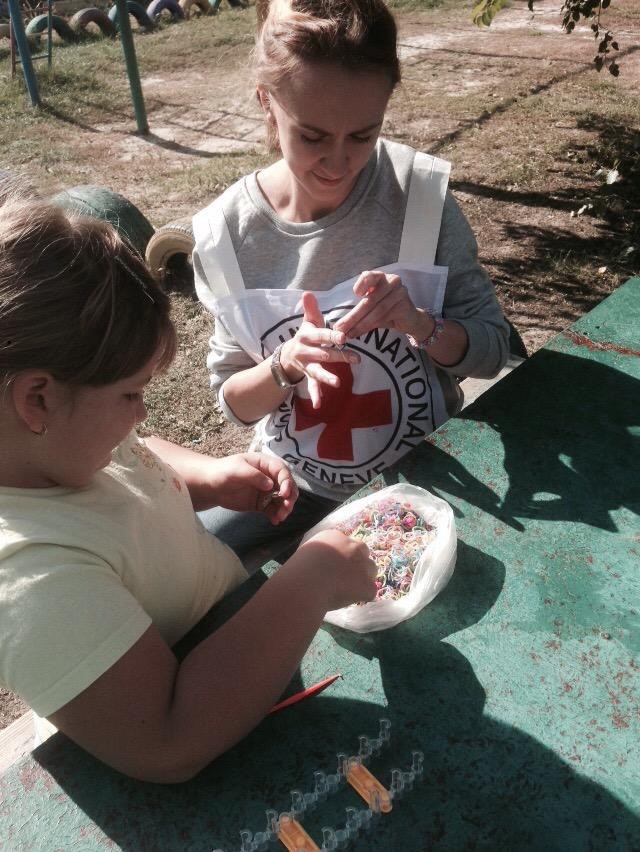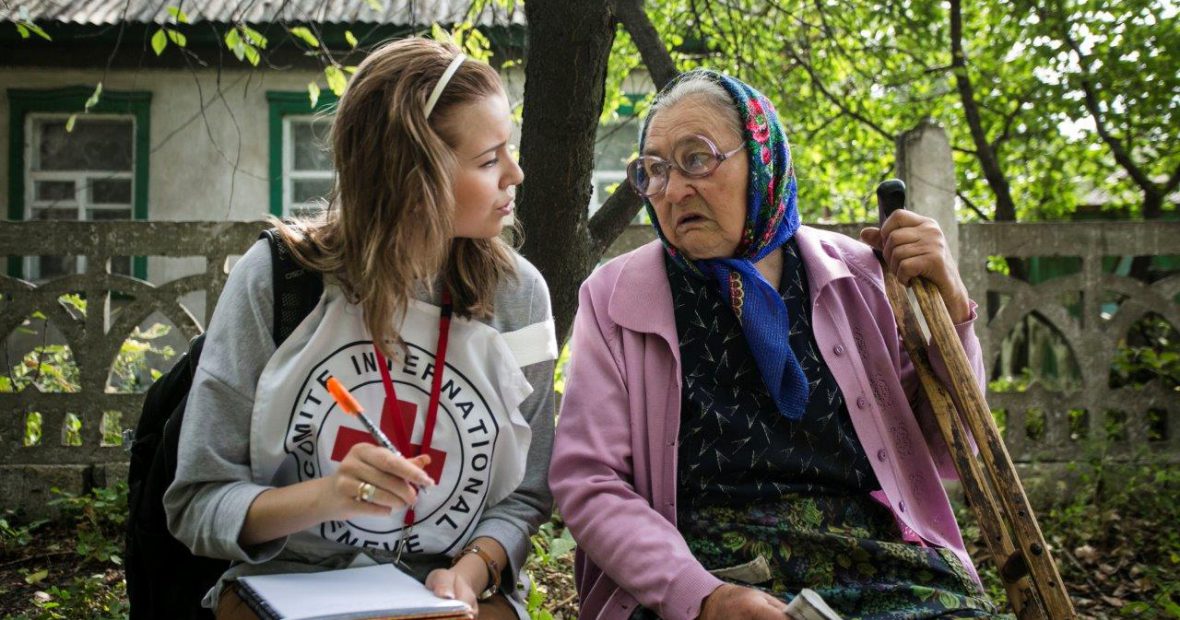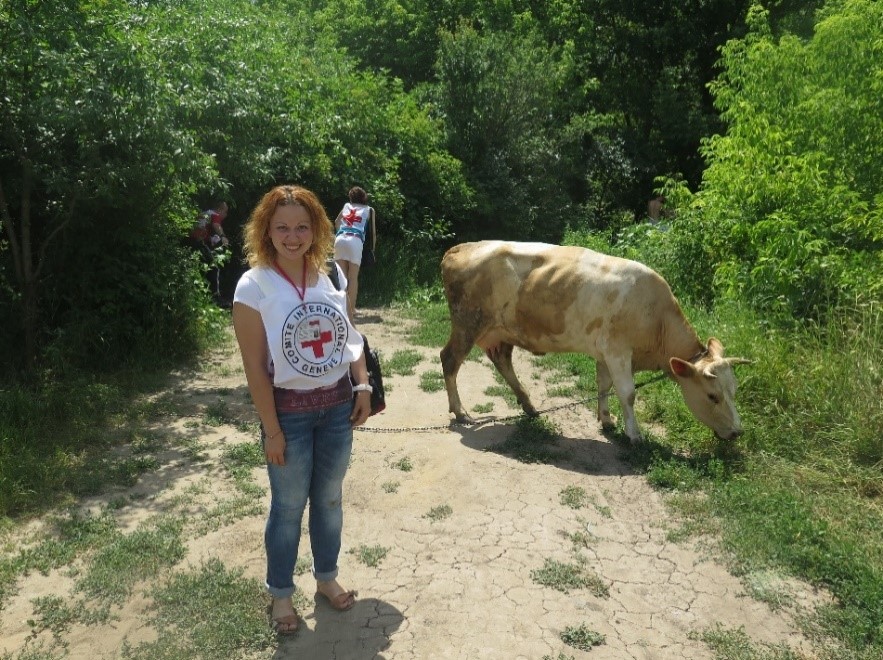Engineers, a literature teacher, a doctor and a human resources manager told us why they have chosen the humanitarian sector, and about their experiences with the International Committee of the Red Cross (ICRC).
At the ICRC’s delegation in Ukraine, women are involved in every aspect of our work, including caring for the wounded, building vital infrastructure or promoting international humanitarian law among militaries. Having women on board has a direct operational impact. It ensures a close proximity with all victims, including women and girls. In many situations, women simply better understand other women’s needs. Our organization derives great strength from its gifted women in the field on both sides of the line of contact.
Yulia, Water and Habitat Engineer, Mariupol. She is working on recovering vital infrastructure damaged by hostilities. Yulia started with the ICRC right after graduating from a metallurgical engineering faculty.
“Working for the ICRC has allowed me to help people, as well as use my professional skills as an engineer. Of course it’s a challenging job, but if you work hard every day you can change reality around you. We saw people who were having to wait long hours in queues at checkpoints in freezing cold or very hot weather conditions, with no facilities. We installed toilets – and now I know that my work has really helped people by making their waiting a bit easier.”

While waiting for the distribution of food parcels in Maiorsk, a local girl teaches Alla how to make a bracelet from rubber bands
Alla, Economic Security Field Officer, Sloviansk. She is helping conflict-affected communities to cover their essential needs. Alla studied English language and literature at university and worked as a copywriter before joining the ICRC.
“I myself am from the region affected by the conflict, so I’m driven by a desire to help somehow. My work is very interesting, but the most exciting part of it is seeing the real changes we make. This year we distributed chickens to a number of frontline villages to help households produce more food themselves. We were concerned that people would kill and eat them right away because, as you can imagine, the situation there is very difficult. But when we came back six months later, we saw that all the chickens were still alive and people were looking after them as if they were their children! In some villages, people look forward to our visits not just for the humanitarian aid we bring. They ask us about our work, or about our health and families. Once a woman gave me a crystal salad bowl as a present at New Year. It wasn’t new, but it was all she had to give. Moments like that are the best part of my job.”
Iryna, Health Field Officer, Severodonetsk. Iryna is working on a medical assistance project delivering financial donations and medicines to frontline hospitals. She was a family doctor before joining the ICRC.
“At the beginning of my career with the ICRC I conducted first aid training for arms carriers. Later I started to work with the most vulnerable civilians – wounded and ill hospital patients. Now I help the injured and people with chronic diseases who cannot get appropriate medicines. I like the way my character has changed because of this work. When I worked as a doctor, at some point I discovered I was becoming a bit cynical. That was nothing unusual, because a doctor`s work is extremely stressful. But working with the ICRC has contributed to preserving and even increasing my humanity, while still helping the same most vulnerable people. That’s what inspires me the most.”
Tatyana, Protection Field Officer. Tatyana is part of the ICRC team working on clarifying the fate of persons who are missing due to the conflict, and providing support to their families. Earlier she worked as a human resources manager and a recruiter.
“It’s a real challenge witnessing the suffering and desperation of mothers who haven’t seen their sons for years and don’t know if they are dead or alive. It’s extremely difficult to hear the stories of wives who have already lost all hope of seeing their husbands ever again. It is impossible to get used to it. But there are moments in my work which inspire me and give me strength to go on, like when I heard an 80-year-old woman talking to her nephew for the first time in more than two years, and saw her tears of happiness. I’m glad to have the opportunity to share such emotions with the people we’re trying to help.”
Ekaterina, administration department, Donetsk. She is a mechanical engineer by education.
“My passion for voluntary work started in my school years. I would take any opportunity to volunteer for all kinds of events. When you help someone without expecting anything in return, you feel a real joy. You also learn so much from people who have been through difficult times. Today, working with the ICRC inspires me to continue assisting those in need. No matter how big or small your assistance is, sometimes a kind word can work miracles.”





